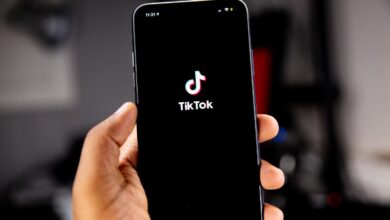Is Twitter a fizzer?
There are a lot of Twitter naysayers out there. It almost seems as though there are more people griping about Twitter than there are people using it.
A recent post on Julian Cole’s Adspace Pioneers blog suggested that Twitter will not go mainstream and that all the hype around it will fizzle out into non-existence. Everyone who uses Twitter will go back to occasionally updating their Facebook status instead, and be done with it.
There are a number of reasonable criticisms levelled at Twitter. The main one is that it’s effectively a channel for the mass publication of useless personal information. This criticism is expressed in many ways, few of which are more entertaining than the ‘hate tweeting’ blog.
A similar argument was levelled at blogging for a long time. Blogs are now a widely accepted and useful part of the internet and empowering and democratising method of self-publication.
While that’s no good as an argument in favour of Twitter, it might still be premature to rule it out as a game-changer in the way people communicate online.
What is the appeal of the popular micro-blogging platform?
It embraces and facilitates the real value of social media: an abundance of information. As everyone now contributes information, there’s a lot more of it to go around. Not only is there more, but it’s more personally authentic, too: it’s being published by people who are just like you.
The biggest difficulty Twitter faces in its evolution from online trend to social media mainstay is growing beyond the aimless nihilism that was typical of early blogging efforts. It’s potentially much more of a pollutant than blogs, as users are encouraged to update as often as possible, which can mean a much greater volume of pointless personal thoughts.
It doesn’t take long for a Twitter user to see this and to want to find a way of using the service that avoids the drudgery of their friends’ personal moments. The most direct solution is to only follow people who share information you value. If you’re concerned about alienating your friends by unfollowing them (even though Twitter isn’t as ‘friend’-oriented as Facebook) then the next solution is the hashtag search function. A user simply has to type their topic into the search field, and it displays a relevant stream of tweets. Once the user has established the relevant hashtag for the topic, they have a hyper-relevant stream of tweets that’s updating constantly.
While this is great, it’s still not game-changing or even ground-breaking. This brings us to the true appeal of Twitter: mobile. If everyone had a web capable mobile device, Twitter’s @ function would replace SMS. You could share information with or ask questions of your now highly relevant Twitter stream.
There are a huge number of potential applications for the hashtag function in this instance. It could be treated as a hyper-personal search recommendation. It could be used to coordinate the movements of groups of people.
As for the marketing appeal: well, this depends quite heavily upon the widespread use of Twitter. Currently, the appeal isn’t that big, as there are only a few techno-savvy folks using Twitter. But, given the potential for the platform, if everyone had smartphones, the latent possibility is there.
More importantly, the kind of content that is appearing on Twitter is strongly experiential. From comical hashtag threads to restaurant recommendations, experience is largely the focus of the micro-blogging site; a solid springboard for marketers, especially given the global tendency toward the use of experience in advertising. #




